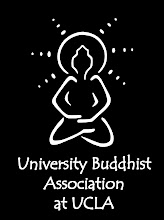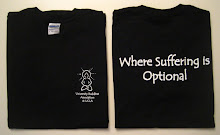Newsweek features the article "Our Mutual Joy", exploring what the Bible really says about homosexuality.
"If the bible doesn't give abundant examples of traditional marriage, then what are the gay-marriage opponents really exercised about? Well, homosexuality, of course—specifically sex between men. Sex between women has never, even in biblical times, raised as much ire. In its entry on "Homosexual Practices," the Anchor Bible Dictionary notes that nowhere in the Bible do its authors refer to sex between women, "possibly because it did not result in true physical 'union' (by male entry)." The Bible does condemn gay male sex in a handful of passages. Twice Leviticus refers to sex between men as "an abomination" (King James version), but these are throwaway lines in a peculiar text given over to codes for living in the ancient Jewish world, a text that devotes verse after verse to treatments for leprosy, cleanliness rituals for menstruating women and the correct way to sacrifice a goat—or a lamb or a turtle dove. Most of us no longer heed Leviticus on haircuts or blood sacrifices; our modern understanding of the world has surpassed its prescriptions. Why would we regard its condemnation of homosexuality with more seriousness than we regard its advice, which is far lengthier, on the best price to pay for a slave?
Religious objections to gay marriage are rooted not in the Bible at all, then, but in custom and tradition (and, to talk turkey for a minute, a personal discomfort with gay sex that transcends theological argument). Common prayers and rituals reflect our common practice: the Episcopal Book of Common Prayer describes the participants in a marriage as "the man and the woman." But common practice changes—and for the better, as the Rev. Martin Luther King Jr. said, "The arc of history is long, but it bends toward justice." The Bible endorses slavery, a practice that Americans now universally consider shameful and barbaric. It recommends the death penalty for adulterers (and in Leviticus, for men who have sex with men, for that matter). It provides conceptual shelter for anti-Semites. A mature view of scriptural authority requires us, as we have in the past, to move beyond literalism. The Bible was written for a world so unlike our own, it's impossible to apply its rules, at face value, to ours."
About the UBA
The University Buddhist Association of UCLA is an organization of students, faculty, and community members who come together to learn about and practice Buddhism. We're a non-sectarian Buddhist group that welcomes all Buddhists and non-Buddhist of all faiths and traditions.
If you're interested in learning more about the UCLA Buddhist community, please come to our meetings.
When: Every Tuesday, 5:30 - 7:00pm
Where: University Catholic Center
633 Gayley Avenue
Los Angeles, CA 90024
If you have any questions, please contact us at uba.ucla.online@gmail.com.
If you're interested in learning more about the UCLA Buddhist community, please come to our meetings.
When: Every Tuesday, 5:30 - 7:00pm
Where: University Catholic Center
633 Gayley Avenue
Los Angeles, CA 90024
If you have any questions, please contact us at uba.ucla.online@gmail.com.

Custom Search
Sunday, December 7, 2008
Subscribe to:
Post Comments (Atom)





No comments:
Post a Comment